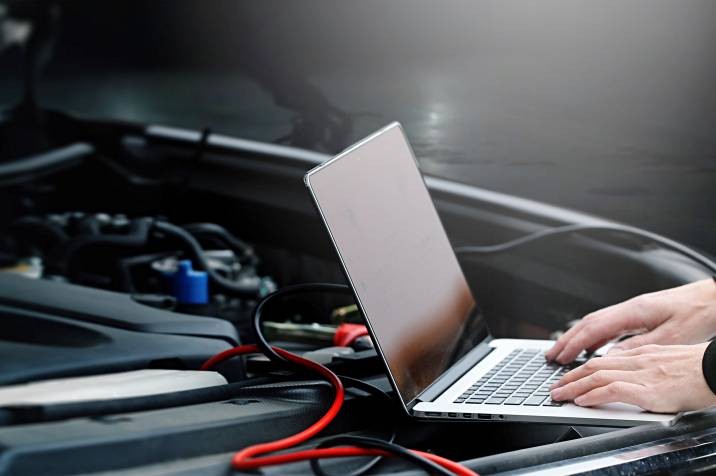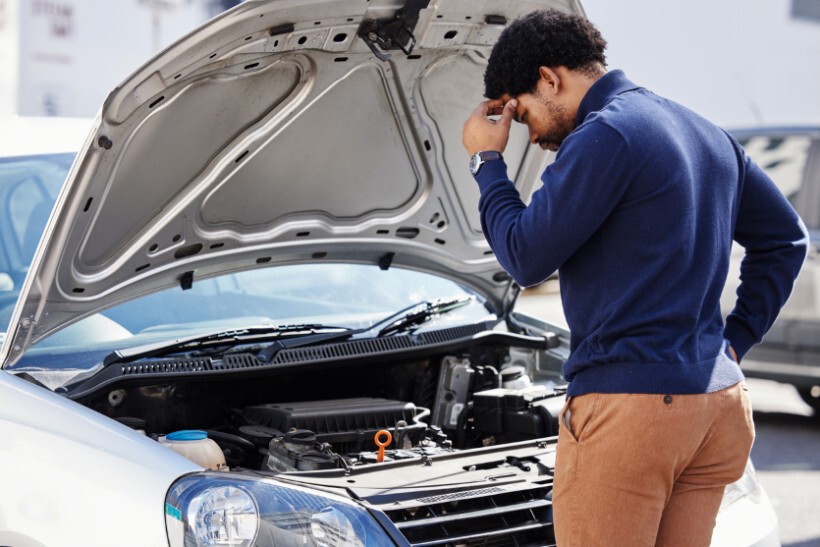Navigating car troubles can be stressful, and when that check engine light illuminates, your first thought might be about the potential repair bill. But before diving into repairs, understanding what’s wrong is crucial. That’s where a car diagnostic test comes in. If you’re wondering, “how much does a diagnostic test cost on a car?”, you’re in the right place. Typically, you can expect to pay anywhere from $20 to over $400 for a car diagnostic service. This range varies based on several factors, including where you go for the service, the type of vehicle you drive, and the depth of the diagnostic testing required. Understanding these cost factors can help you make informed decisions and potentially save money while ensuring your vehicle gets the attention it needs.
Understanding Car Diagnostic Tests
Modern vehicles are incredibly sophisticated, equipped with onboard computer systems and numerous sensors that monitor everything from engine performance to emissions. When something goes amiss, these systems often trigger a warning light, most commonly the check engine light. A car diagnostic test is essentially a health check for your vehicle’s computer system. Mechanics use specialized tools and software to communicate with your car’s computer, retrieve trouble codes, and analyze sensor data. This process helps pinpoint potential problems within various systems, from the engine and transmission to the braking and exhaust systems.
What a Comprehensive Car Diagnostic Test Covers
Alt text: Mechanic performing a car diagnostic test using diagnostic software on a laptop, connected to the car’s OBD-II port.
A thorough car diagnostic test is more than just reading error codes. It involves a comprehensive check of your vehicle’s vital systems, providing a detailed overview of its health. During a full diagnostic service, a skilled mechanic should be able to assess and provide a report on the following:
- Engine Performance: Evaluating engine efficiency, identifying issues with combustion, misfires, or unusual noises.
- Electrical System: Checking battery health, alternator function, wiring issues, and the performance of electronic components.
- Sensors: Analyzing the readings from various sensors throughout the vehicle, which are crucial for accurate system monitoring and control.
- Transmission: Assessing the transmission’s performance, looking for slipping, rough shifting, or fluid pressure problems.
- Braking System: Checking the ABS (Anti-lock Braking System), brake pad wear sensors, and overall braking efficiency.
- Exhaust System: Analyzing emissions levels and catalytic converter efficiency to ensure environmental compliance and identify exhaust leaks.
- Fuel Injection System: Evaluating fuel pressure, injector performance, and fuel efficiency.
- Throttle Control: Assessing the electronic throttle body and related sensors for smooth acceleration and idle control.
- Ignition System: Checking spark plugs, ignition coils, and related components for proper engine firing.
- Air Conditioning and Climate Control: Evaluating the AC system’s pressure, compressor function, and cooling efficiency.
- Airbags and Safety Systems: Inspecting the functionality of airbags, seatbelt pretensioners, and other safety-related electronics.
It’s important to remember that while a diagnostic test is excellent at identifying the source of a problem area, it may not always pinpoint the exact failed component. It guides the mechanic by narrowing down the possibilities, leading to more efficient manual inspections and repairs, ultimately saving time and potentially preventing further damage.
Car Diagnostic Test Costs: What to Expect
To give you a clearer picture of what you might pay for a car diagnostic test, here’s a cost breakdown:
| Car Diagnostic Test Category | Estimated Price Range | Description |
|---|---|---|
| Basic Diagnostic Scan | $20 – $75 | Entry-level scan, often offered at chain auto parts stores, reads basic trouble codes. |
| Mid-Range Diagnostic Service | $75 – $175 | More in-depth scan at independent repair shops, includes code reading and basic analysis. |
| Comprehensive Diagnostic Test | $175 – $400+ | Dealer or specialized mechanic diagnostics, includes thorough system analysis and reporting. |


Disclaimer: These prices are estimates based on market research and industry rates. Actual costs can vary. It’s always recommended to get a quote from your local mechanic for the most accurate pricing.
It’s also worth noting that some repair shops may offer a “free” diagnostic test. However, these are often limited to a very basic code scan to get you in the door. A truly comprehensive diagnostic service that provides real value will typically involve a fee. Think of it as paying for expertise and specialized equipment to accurately assess your vehicle’s condition.
Factors Influencing the Price of a Car Diagnostic Test
Several key factors can affect how much you’ll pay for a car diagnostic test:
Location, Location, Location
Geographical location plays a significant role in pricing. Areas with higher costs of living, like major metropolitan cities, tend to have higher labor rates for auto repair services, including diagnostics. Conversely, you might find slightly lower prices in more rural areas with less overhead for businesses. Competition also plays a role; areas with many auto repair shops may see more competitive pricing to attract customers.
Mechanic’s Expertise and Shop Type
The experience level of the mechanic and the type of repair shop you choose will impact the cost. Dealerships often have higher diagnostic fees due to their specialized factory-trained technicians and proprietary diagnostic equipment. Independent repair shops can offer a wider range of pricing depending on their specialization and the expertise of their mechanics. Mechanics with advanced certifications and extensive experience may command higher labor rates, but this often translates to more accurate diagnoses and efficient repairs.
Vehicle Make and Model
The complexity of your vehicle and its brand can also influence diagnostic costs. Luxury vehicles and high-performance cars often have more intricate computer systems and require specialized diagnostic tools and expertise. Diagnosing issues in these vehicles might take longer and require mechanics with specific training, leading to higher service fees. Conversely, diagnostic tests for common, mass-market vehicles might be slightly less expensive due to the wider availability of parts, diagnostic information, and mechanic familiarity.
When Should You Invest in a Car Diagnostic Test?
Alt text: Car owner inspecting the engine bay of his car, considering a diagnostic test due to performance concerns.
Knowing when to get a diagnostic test can save you money and prevent minor issues from turning into major, expensive repairs. Here are key situations when a diagnostic test is a smart investment:
- Check Engine Light Illumination: This is the most obvious sign. A lit check engine light indicates that your car’s computer has detected a problem. A diagnostic test is essential to understand the cause.
- Used Car Purchase: Before buying a used car, a pre-purchase inspection that includes a diagnostic test can reveal hidden issues and help you avoid buying a vehicle with existing problems.
- Preventive Maintenance: Consider periodic diagnostic tests as part of your preventative maintenance schedule, especially for older vehicles or those with high mileage. Early detection of minor issues can prevent costly breakdowns.
- Unusual Vehicle Behavior: If you notice any changes in your car’s performance, such as rough idling, unusual noises, decreased fuel efficiency, or sluggish acceleration, a diagnostic test can help identify underlying problems even if the check engine light is not on.
Finding the Right Diagnostic Service
Getting a clear understanding of how much a diagnostic test costs on a car is the first step. The next is finding a reliable service provider. When choosing where to get your car diagnosed, consider the following:
- Reputation and Reviews: Look for repair shops with positive online reviews and a solid reputation for honest and competent service.
- Mechanic Certifications: ASE (Automotive Service Excellence) certifications are a good indicator of a mechanic’s knowledge and skills.
- Equipment and Technology: Ensure the shop uses up-to-date diagnostic equipment and software to accurately assess modern vehicles.
- Warranty and Guarantees: Ask about warranties on diagnostic services and repairs.
- Transparent Pricing: Choose a shop that provides clear and upfront pricing for diagnostic tests and is willing to explain the costs involved.
By understanding the costs associated with car diagnostic tests and what factors influence them, you can approach vehicle maintenance with confidence. Investing in a diagnostic service when needed is a proactive step towards keeping your car running smoothly and avoiding larger repair bills down the road.
